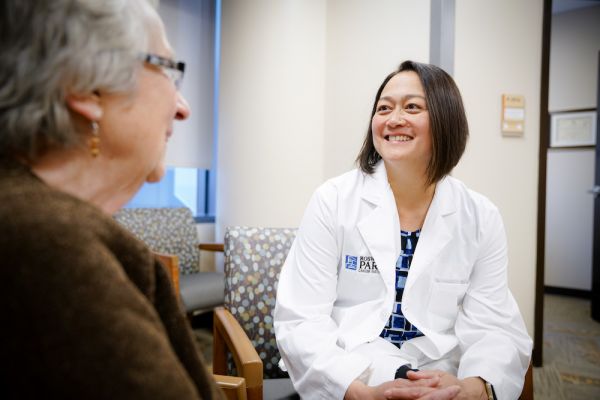Even if you already have cancer, you can’t let down your guard when it comes to prevention. In fact, cancer patients have even more reason to be on guard, because they usually have a higher risk for infection or developing other types of cancer. Here are six steps you can take to decrease that risk:
1. Eat a diet rich in plant-based foods like vegetables, fruits, whole grains and beans.
Eating a diet of mostly plant foods plays a big role in how well your body can fend off cancer, because they provide fiber, nutrients and phytochemicals. Those foods can also help with weight management. Maintaining a healthy weight is one of the most important things you can do to protect yourself from cancer: There’s a strong link between excess body fat and cancer risk, as well as risk for a number of other health conditions, including heart disease, high blood pressure and diabetes. In addition to eating more plant-based foods, you can manage your weight by avoiding sugary drinks and alcoholic beverages and being mindful of portion sizes. Visit our Nutrition and Survivorship page for more tips on nutrition and weight management.
2. More than ever, it’s important to stop smoking. If you smoke, quit.
Studies show that cancer treatment is less effective in active smokers, who often face longer healing times and a greater risk of infection compared with non-smokers.
Roswell Park’s smoking cessation services can help. The Tobacco Cessation Treatment Service offers behavioral counseling, medications to help you quit and cessation support for all Roswell Park patients and their family members who smoke. For details, call 1-800-ROSWELL (1-800-767-9355).
3. Take cover from the sun.
Cancer patients who lose their hair during treatment can face special challenges in trying to avoid sun damage that can cause skin cancer. Even in winter, the sun’s ultraviolet rays are stronger than you might think — and reflection from the snow can cause unexpected burns.
A broad-spectrum sunscreen with SPF of at least 30 should be applied to all sun-exposed areas — it should be water-resistant and reapplied periodically.
Roswell Park's Survivorship Program
Create a plan that will be your roadmap to your healthiest lifestyle possible.
Learn More!4. Find out whether you have an inherited risk of cancer.
Only about 5-10% of cancers are caused by inherited gene mutations (abnormalities). Even if you already have cancer, an inherited mutation may mean you’re at risk of developing other primary cancers in the future, and that your relatives may also be at increased risk for cancer. Knowing about that risk could affect decisions about screening and treatment.
Roswell Park’s Clinical Genetics Service can help determine whether or not you should undergo genetic testing; identify the right types of genetic tests and assist you in getting them; interpret and explain the results; and describe the options for managing any increased cancer risk you might have, based on the results of genetic testing. Even if genetic testing is negative for an inherited mutation, enhanced screening may still be recommended based on your personal and family history of cancer.
If you’re concerned about whether or not you have an inherited cancer risk, the first step is to talk with your physician or contact Roswell Park’s Cancer Information Program (1-800-ROSWELL or 1-877-275-7724).
5. Get screened.
Screening tests detect cancer’s hidden warning signs long before symptoms appear, when the disease is most treatable. Cancer screenings become even more important for survivors, who are not only at risk for a recurrence of their cancer but may also be at higher risk of developing another cancer as a result of their treatments. Take our screening assessment to better understand your cancer risk and consult with your care team for recommendations on the frequency and type of screening tests that are right for you. For more information about cancer screening tests or to schedule an appointment with Roswell Park’s Survivorship Clinic, call 1-800-ASK-ROSWELL.
6. Stay active!
Exercise can increase the overall success of your treatment and decrease the chance that your cancer will recur. Be sure to talk with your doctor before changing your diet or starting a new exercise program.

